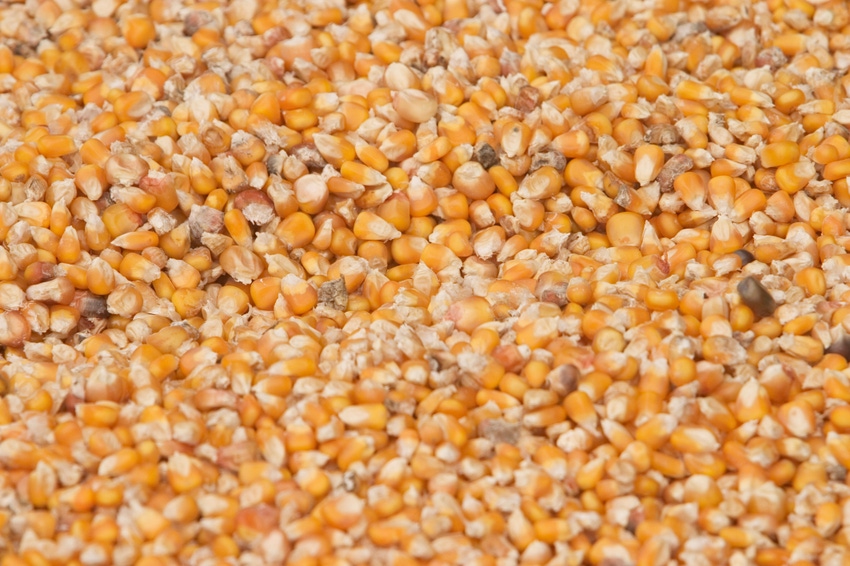
by Margaret Cronin Fisk and Jef Feeley
Farmers have to deal with threats to their crops from nature all the time. Thousands of Kansans, though, argue that Syngenta AG posed an even bigger threat by failing to prevent its genetically modified corn seed from contaminating U.S. crops, which led to a devastating rejection of imports by Chinese officials. More than 7,000 Kansas farmers are going to trial Monday to convince a jury the agricultural giant rushed the genetically engineered seed to market before getting import approval from China, which then stopped shipments saying the corn had been contaminated.
That move, and the farmers’ inability to regain a foothold in China once other countries filled the void, depressed corn prices for years, their suit claims. They’re seeking $200 million in lost sales, plus punitive damages.
Syngenta, which denies any wrongdoing and says its GMO seed wasn’t responsible for price drops, almost went to trial over similar claims in April. The Minnesota court had to reschedule those proceedings after it failed to seat a jury. There are several other trials coming up, including class actions, as lawyers pursue suits on behalf of some 350,000 corn growers claiming as much as $13 billion in losses.
Full Circle
In a twist, the lawsuit spurred by the Chinese action comes as state-owned China National Chemical Corp. is finalizing its $43 billion acquisition of Basel, Switzerland-based Syngenta. A win for the farmers over Syngenta’s sales of the seeds would circle back to the Chinese government that rejected the grain.
U.S. District Judge John Lungstrum, who is overseeing the Kansas trial and most of the litigation, has certified eight state-wide classes so far and had said he’ll set another trial this year. Farmers in 14 additional states are awaiting class certification decisions by the Kansas judge.
Grain exporters Archer-Daniels-Midland Co. and Cargill Inc. have accused Syngenta in separate lawsuits of carelessly allowing its seed to taint U.S. corn, prompting the Chinese rejection. Those suits are pending in state court in Louisiana, with Cargill’s headed for trial next year. Syngenta’s counterclaims against both companies were dismissed in Kansas last year.
Claims by several individual farmers will be featured as representative of the class in the Kansas City trial. Those farmers are hardly huge agribusinesses, according to their complaint. One of the representatives, David Polifka, planted about 1,000 acres of corn in 2013 and again in 2014 in Gove County, in western Kansas. Another, Charles Frickey, planted about 180 acres of corn in 2012 and 140 acres in 2014 in Decatur County, in the northwestern part of the state.
Insect-Resistant
Syngenta began marketing its Viptera insect-resistant corn in 2011 following U.S. approval the prior year.
The farmers say that Syngenta was reckless both in allowing the trait to contaminate U.S. crops and selling a second GMO seed that also hadn’t been approved by China. Syngenta misled the industry on the timing of an expected approval from China, the farmers allege, citing internal company documents and public statements.
In 2012, according to the farmers’ complaint, then-chief executive officer Mike Mack told analysts on a conference call that Syngenta expected to have Chinese approval within “a couple of days.” Mack did qualify that statement on the call, the company said in court papers, adding at the time that he couldn’t “handicap definitively” when China would act.
China didn’t approve the trait until 2014, and Syngenta knew that approval wasn’t imminent in 2012, the farmers said.
Cratering corn prices cost massive losses to farmers and a chance at a growing market, according to the lawsuit. Even after China approved the seed, prices remained depressed because the country had found new sources for corn, they said.
Syngenta denies misleading the industry and has called the damages claims speculative.
The trials may rise or fall on those claims, said law professor Anthony Sabino, of St. John’s University in New York. “It’s not enough for these plaintiffs to prove liability,” he said.
“For the farmer plaintiffs here, they have to present hard economic facts that prove their market losses,” Sabino said. “More than one plaintiff has done a bang-up job of proving liability only to fall flat on proving damages.’’
The case is In Re: Syngenta AG MIR 162 Corn Litigation, 14-md-02591, U.S. District Court, District of Kansas (Kansas City).
To contact the reporters on this story: Margaret Cronin Fisk in Detroit at [email protected]; Jef Feeley in Wilmington, Delaware at [email protected]
To contact the editors responsible for this story: Elizabeth Wollman at [email protected]
Peter Blumberg
© 2017 Bloomberg L.P
About the Author(s)
You May Also Like




